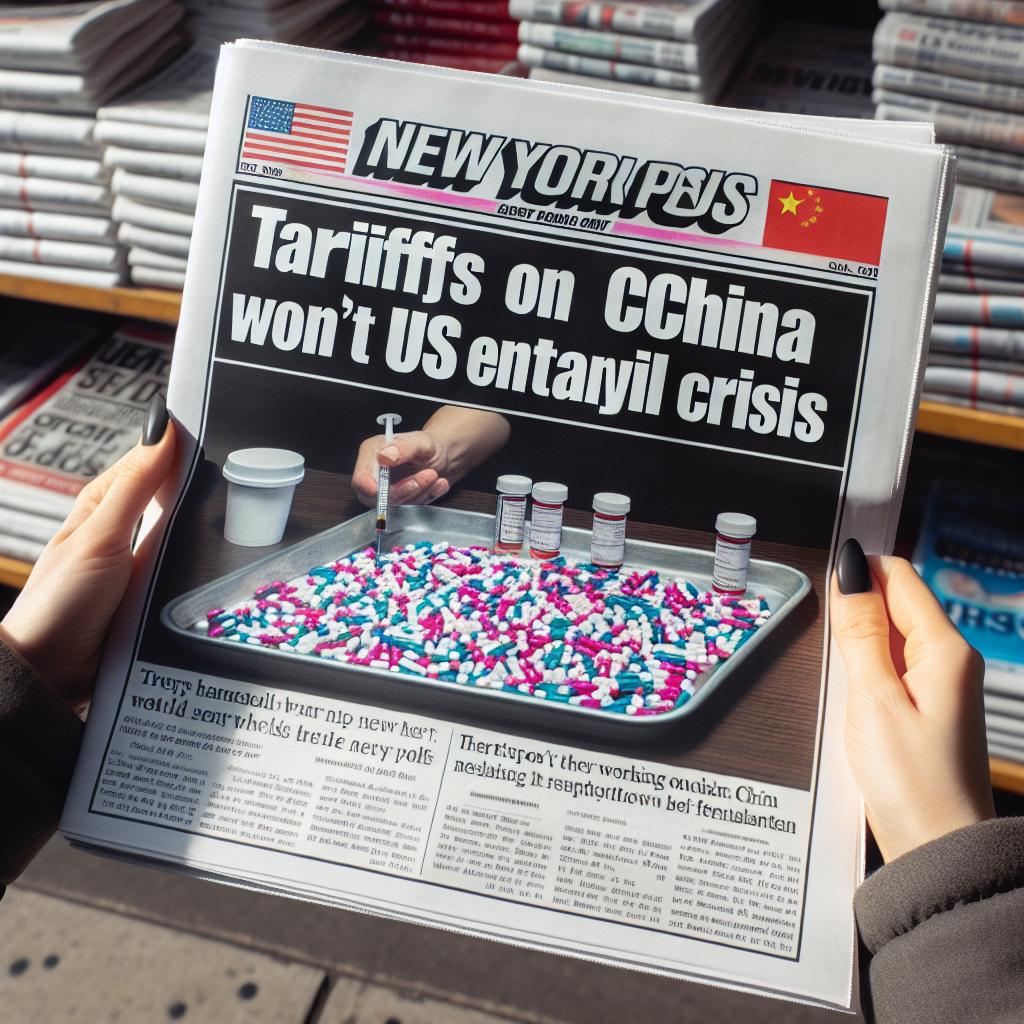Tariffs on China Won’t Solve the US Fentanyl Crisis
Tariffs on China Won’t Solve the US Fentanyl Crisis
Introduction
The ongoing US fentanyl crisis has prompted various policy responses, including the imposition of tariffs on China. However, experts argue that these measures are unlikely to address the root causes of the epidemic.
Understanding the Fentanyl Crisis
Fentanyl, a potent synthetic opioid, has been a major contributor to the opioid epidemic in the United States. Its high potency and low production cost make it a preferred choice for illegal drug manufacturers.
Why Tariffs on China?
The US government has targeted China with tariffs, citing the country’s role in the production and distribution of fentanyl. However, this approach has several limitations:
- China is not the sole producer of fentanyl; production has diversified to other countries.
- Tariffs primarily affect legal trade, not the illegal drug market.
- Smugglers often find alternative routes and methods to bypass trade barriers.
Alternative Solutions
Experts suggest that a more effective strategy would involve:
- Enhancing international cooperation to track and dismantle drug trafficking networks.
- Investing in domestic prevention and treatment programs to reduce demand.
- Improving border security and surveillance to intercept illegal shipments.
Conclusion
While tariffs on China may seem like a proactive measure, they are unlikely to resolve the US fentanyl crisis. A multifaceted approach that addresses both supply and demand, along with international collaboration, is essential for meaningful progress.






































